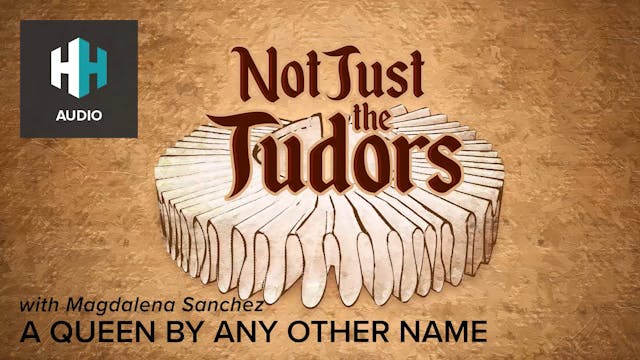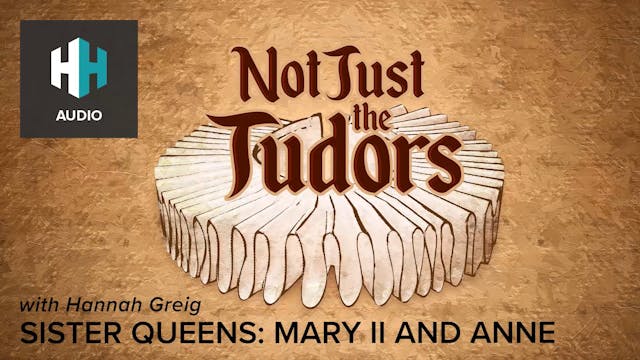🎧 The Coronations of Tudor Queens
🎧 Not Just the Tudors • 34m
Four women were crowned in England between 1509 and 1559: two Queens consort - Catherine of Aragon and Anne Boleyn - and England’s first two Queens regnant, their daughters Mary I and Elizabeth I respectively. The ritual of coronation was crucial for conferring legitimacy and sanctity.
As part of Not Just the Tudors’ Queenship month, Professor Suzannah Lipscomb talks to Dr. Alice Hunt about how the ancient ceremony of coronation took on new meanings at a time of enormous upheaval in the monarchy, religion and politics.
For this episode, the Senior Producer was Elena Guthrie, the Producer was Rob Weinberg and the Editor was Lewis Mason.
For more Not Just The Tudors content, subscribe to our Tudor Tuesday newsletter here: https://www.historyhit.com/sign-up-to-history-hit/?utm_source=timelinenewsletter&utm_medium=podcast&utm_campaign=Timeline+Podcast+Campaign
To download, go to Android: https://play.google.com/store/apps/details?id=com.historyhit&hl=en_GB&gl=US or Apple store: https://apps.apple.com/gb/app/history-hit/id1303668247
Up Next in 🎧 Not Just the Tudors
-
🎧 Heretic or Martyr? Tudor Poet Anne ...
Born in 1521, Anne Askew was condemned as a heretic for her radical Protestantism beliefs during the reign of Henry VIII. Tortured and executed after the Pilgrimage of Grace in 1537, she was also one of the earliest known women poets to compose in the English language. Uniquely, her surviving fir...
-
🎧 A Queen By Any Other Name
Isabel Clara Eugenia was the heir to the kingdoms of Spain and Portugal, but she was never crowned Queen. But despite this, her life provides a fascinating example of early modern female sovereignty, illustrating how benevolence, humility, wifely obedience and piety could be exercised to realise ...
-
🎧 Sister Queens: Mary II and Anne
To mark the Platinum Jubilee of Queen Elizabeth II, June is Queenship month on Not Just the Tudors. Our series continues with a look at two of Britain’s less well-known monarchs - Queen Mary II and her sister Queen Anne. Both were highly competent and courageous Queens with fascinating public and...




1 Comment